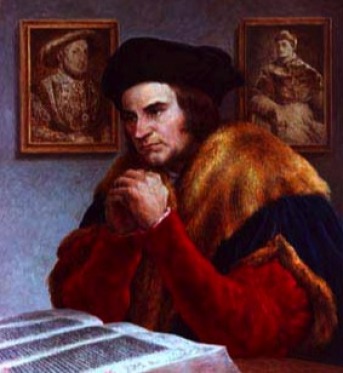Legacy

In 1523 More became the Speaker of the House of Commons. As such, he expressed the first known request by a Speaker of the House for free speech. In 1525, he became chancellor of the Duchy of Lancaster, a position holding administrative and judicial control of much of northern England.
He didn't necessarily introduce the idea of a utopian society, however, he did advance it though. He wrote a book about it tittled, "Utopia". A utopia is defined as "any visionary system of political or social perfection". There have been additional books written on this topic, as well as movies produced with stars such as Drew Barrymore.
Thomas More had many acts of rebellion and disagreement with higher authorities, such as kings. For one, he refused to attend the coronation of Anne Boleyn, which the king took notice of. In 1534 he was one of the people accused of complicity with Elizabeth Barton, the nun of Kent who opposed Henry's break with Rome, but was not attainted due to protection from the Lords who refused to pass the bill until More's name was off the list of names.1 In April, 1534, More refused to swear to the Act of Succession and the Oath of Supremacy, and was committed to the Tower of London on April 17. More was found guilty of treason and was beheaded alongside Bishop Fisher on July 6, 1535.
Sources:
http://www.luminarium.org/renlit/morebio.htm
http://en.wikipedia.org/wiki/Thomas_More
bp0.blogger.com/.../s1600/St.+Thomas+More+2.jpg
http://dictionary.reference.com/browse/utopia
Page created by Austin
